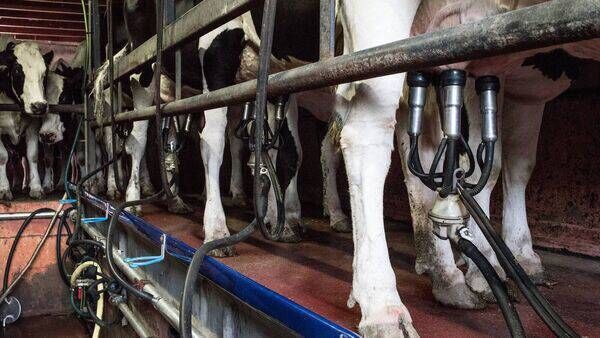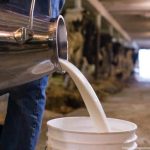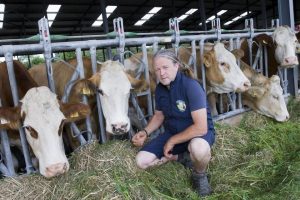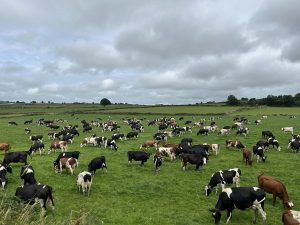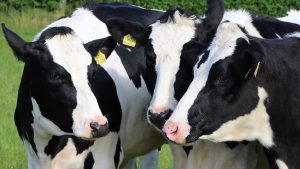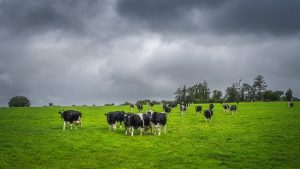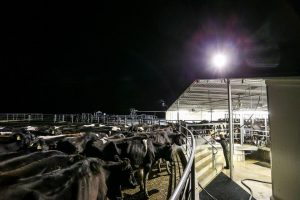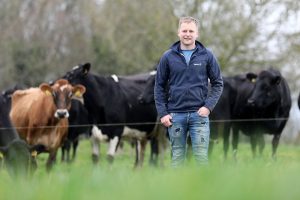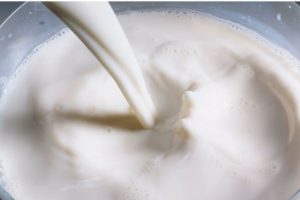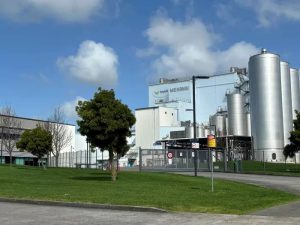
Dairy farmers are “near breaking point now” as they warn processors that they cannot sustain any more cuts to milk prices.
With processors to confirm their prices for March milk supplies in the coming days, Irish Farmers’ Association dairy chairman Stephen Arthur said that farmers have endured price cuts in excess of 10c per litre since January, “which equates to an income reduction of €50,000 for the average supplier”.
“Many processors will remove early calving bonuses in March so farmers will endure a cut in income before any changes to base price are made,” he said.
Met Éireann has reported that this past March was the wettest March on record, while the start of April “has seen absolutely no let up”.
“Cows are housed throughout the country resulting in big drops in milk supplies while feed and fertiliser prices remain at record levels,” Mr Arthur said.
“All of this means that the overall cost of production has soared for 2023.”
‘Disastrous crossover’
Irish Creamery Milk Suppliers Association dairy chairman Noel Murphy said that while markets are under some pressure at wholesale level which resulted in co-ops cutting farmgate prices this year, “it is time for milk purchasers to show their mettle”.
“Farmgate price should never go as low as the bottom falling wholesale price. Against that principle, the base price of milk needs to be held at current levels — at a minimum — for the remainder of 2023,” Mr Murphy said.
“Commodity spot prices spent over four months in the early to mid-60s cent per litre in 2022 and the highest base price returned was 58c per litre in 2022.
“There is no doubt prices had to come back, but it is now approaching a level where costs of production are coming close and, in many cases, exceeding base price.”
The ICMSA said that its analysis shows that the February milk price was at or exceeding the cost of production.
“We are getting dangerously close to the disastrous crossover point where costs per litre exceed co-op payment,” Mr Murphy added.
“That can’t happen and there’s no need for it to happen if the co-op boards do their work and get after the value they always insisted they’ve built into our products.”
Most volatile factor
Diarmaid Mac Colgáin, founder of Concept Dairy and former head of trading with Ornua, told the Irish Examiner that the most volatile factor for dairy farmers remains milk prices and that farmers are probably still holding back on purchasing feed and fertiliser “because they don’t know where the milk price is going to be”.
He said that it is easier for processors to hold a high milk price in December, January and February, “but March is when the volume starts coming in, we’re coming into the end of calving season, so we’re starting to see decent milk volumes and that’s when it’ll come in to roost and we’ll see where the real milk price is”.
Mr Mac Colgáin also said that it is “very difficult” to compare the milk prices paid by Irish processors because of the different products that are being made.
“We’re comparing ourselves to each other but in reality, we export 95% of all our dairy products every year, so we should be focusing on the international markets and what the exposure is there versus what we’re paying internally,” he added.
Dairy processors’ financial results
On Wednesday, Lakeland Dairies announced its financial results for 2022.
Lakeland’s revenues increased by 45% to €1.9bn, and a 15% increase in operating profit to €32.5m, and earnings before interest, tax, depreciation and amortisation (EBITDA) of €60.2m, which increased by €4.8m.
Lakeland’s group chief executive Colin Kelly said that these results are based on a “strong, progressive, and resilient performance, notwithstanding a deeply competitive and uncertain global market environment”.
Mr Kelly said that the impact of geopolitical problems and continuing economic uncertainty were seen globally, with serious inflationary effects across every cost base, at farm and organisational level.
“Nevertheless, the dairy markets yielded strong returns and Lakeland Dairies was able to pay a very competitive milk price to our milk producers,” he added, however, noting that market conditions for this year are “proving much tougher” for milk suppliers, and will remain contingent on “global factors, including the overall balance of supply and demand”.
He added that economic uncertainty remains a “serious concern”, with the potential for continued market volatility.
Dairygold also published its financial results.
The co-op had a record turnover of €1.65bn, an increase of 40.9%, with an EBITDA of €68.5m and an operating profit of €40.2m.
The increase in EBITDA and operating profit was achieved against a backdrop of “considerable volatility and inflationary pressures, while paying leading milk and grain prices”, Dairygold said.
Chief executive Conor Galvin commented that the dairy industry and the volatile conditions within which it operates “continue to go through a period of significant uncertainty, with huge challenges to be faced, including sustainability, geopolitical tensions and ongoing market volatility”.
